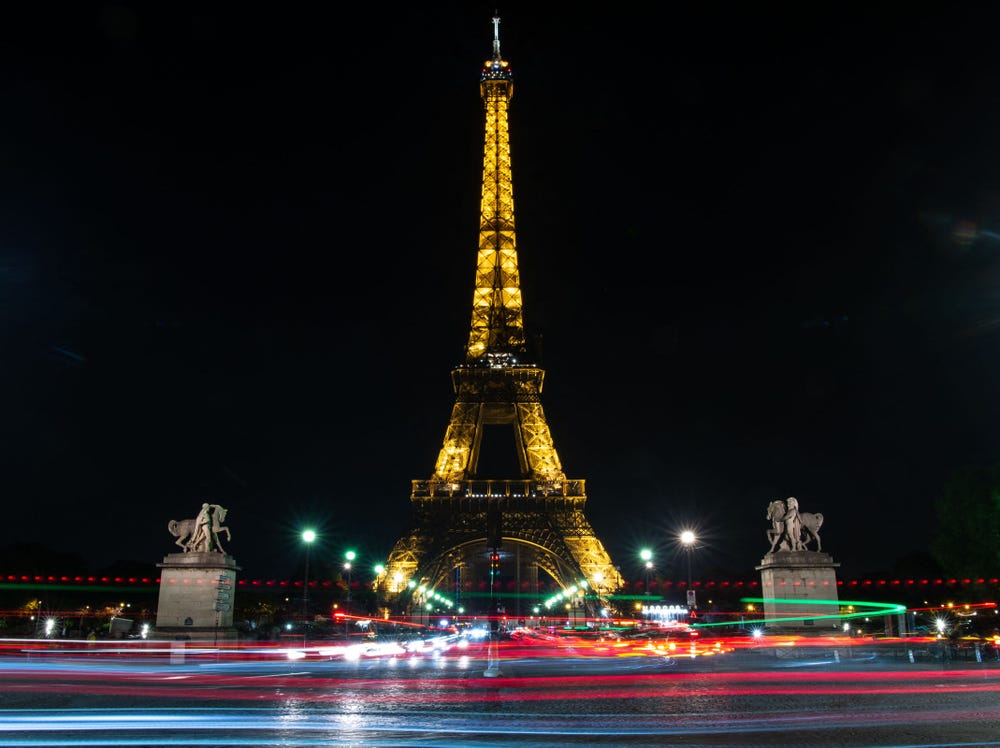
The most famous landmark in Paris, the Eiffel Tower, is set to go dark early as the French capital seeks to save energy amid Europe's energy crisis, The Guardian reported.
The 1,083 ft tower, completed in 1889, is lit up every day from dusk until 1 a.m.
The tower's lights have given the "Iron Lady" her golden glow since 1958. Its 20,000 bulbs also twinkle for five minutes on the hour, every hour.
But City Hall is expected this week to propose turning off the tower's lights more than an hour early at 11.45 p.m, when the last visitors leave, to save electricity.
Jean-François Martins, the head of the tower's management, told The Guardian: "It's a highly symbolic gesture – part of the growing awareness around energy sobriety."
The tower's nighttime lighting accounts for just 4% of its annual energy consumption, however.
The move is seen as a way to set an example for the reduction of city illumination in general as countries brace for the coming winter. Energy bills have skyrocketed, and Russia's Gazprom has stopped sending natural gas to French utility Engie over a payment dispute as Insider has reported.
Meanwhile, Marseille, another big city in France, will turn off the lights of some monuments like the Pharo Palace from the end of September, according to The Guardian.
Paris isn't the only city to be mindful of energy consumption. In Germany this summer, cities limited heating and turned off lights to save energy.
The Eiffel Tower went fully dark on Thursday after Queen Elizabeth II's death was announced. The last time the tower's lights were turned off was following terrorist attacks in Paris in November 2015.